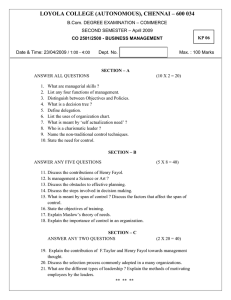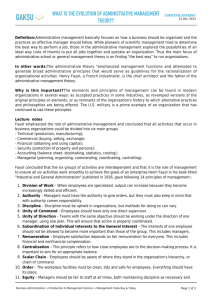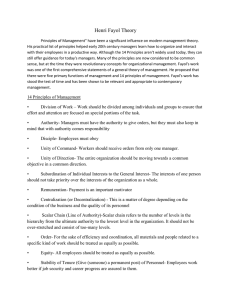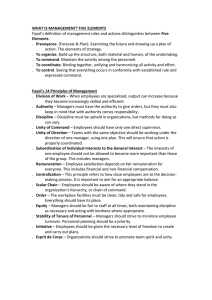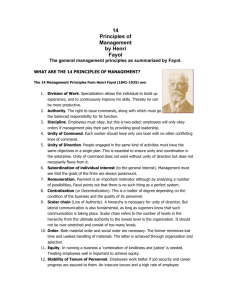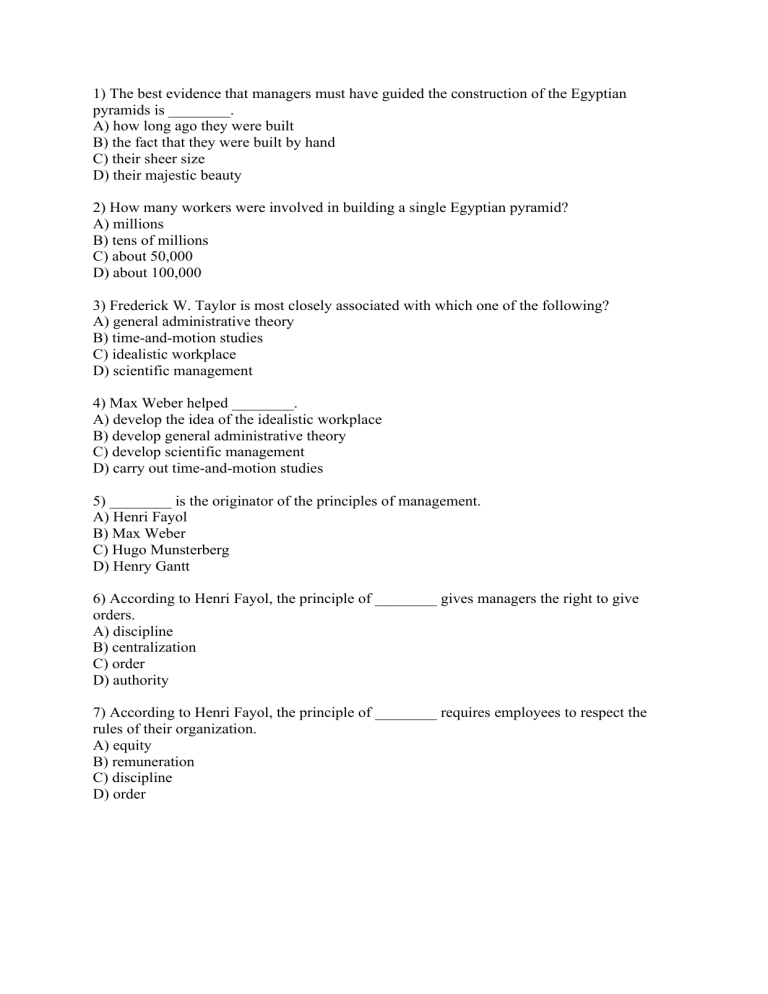
1) The best evidence that managers must have guided the construction of the Egyptian pyramids is ________. A) how long ago they were built B) the fact that they were built by hand C) their sheer size D) their majestic beauty 2) How many workers were involved in building a single Egyptian pyramid? A) millions B) tens of millions C) about 50,000 D) about 100,000 3) Frederick W. Taylor is most closely associated with which one of the following? A) general administrative theory B) time-and-motion studies C) idealistic workplace D) scientific management 4) Max Weber helped ________. A) develop the idea of the idealistic workplace B) develop general administrative theory C) develop scientific management D) carry out time-and-motion studies 5) ________ is the originator of the principles of management. A) Henri Fayol B) Max Weber C) Hugo Munsterberg D) Henry Gantt 6) According to Henri Fayol, the principle of ________ gives managers the right to give orders. A) discipline B) centralization C) order D) authority 7) According to Henri Fayol, the principle of ________ requires employees to respect the rules of their organization. A) equity B) remuneration C) discipline D) order 8) Fayol's principle of ________ states that an employee in an organization should answer to only one superior. A) authority B) unity of command C) equity D) centralization 9) Fayol's principle of ________ states that employees in an organization should be fairly compensated for their labor. A) remuneration B) discipline C) authority D) unity of command 10) Fayol's principle of ________ refers to how extensively employees participate in decision making in an organization. A) division of labor B) centralization C) order D) equity 11) Fayol's principle of ________ allows employees to originate and carry out plans. A) discipline B) remuneration C) initiative D) authority 12) Fayol's principle of ________ refers to how to build harmony and unity in an organization. A) centralization B) equity C) order D) esprit de corps 13) Max Weber felt this was an ideal form of organization. A) a democracy B) a work group C) a bureaucracy D) a meritocracy 14) Robert Owen tried to develop ________ to improve the workplace conditions in factories. A) managerial scheduling methods B) the idealistic workplace C) general administrative theory D) industrial psychology 15) Robert Owen, Mary Parker Follett, and Hugo Munsterberg wrote extensively about how important ________ to an organization's success. A) people are B) top-level managers are C) resources are D) financial backing is 16) Mary Parker Follett’s work was devoted to identifying differences in the way individuals behaved when they were ________. A) under stress B) discriminated against C) lacking in resources D) in groups 17) The "father" of scientific management was ________. A) Henri Fayol B) Robert L. Katz C) Henry Mintzberg D) Frederick Winslow Taylor 18) The Egyptian pyramids are an example of a project that was completed without the aid of managers. Answer: FALSE 19) Job specialization continues to be a popular way to increase productivity today. Answer: TRUE 20) The Hawthorne studies suggested that groups could influence the productivity of an individual. Answer: TRUE
